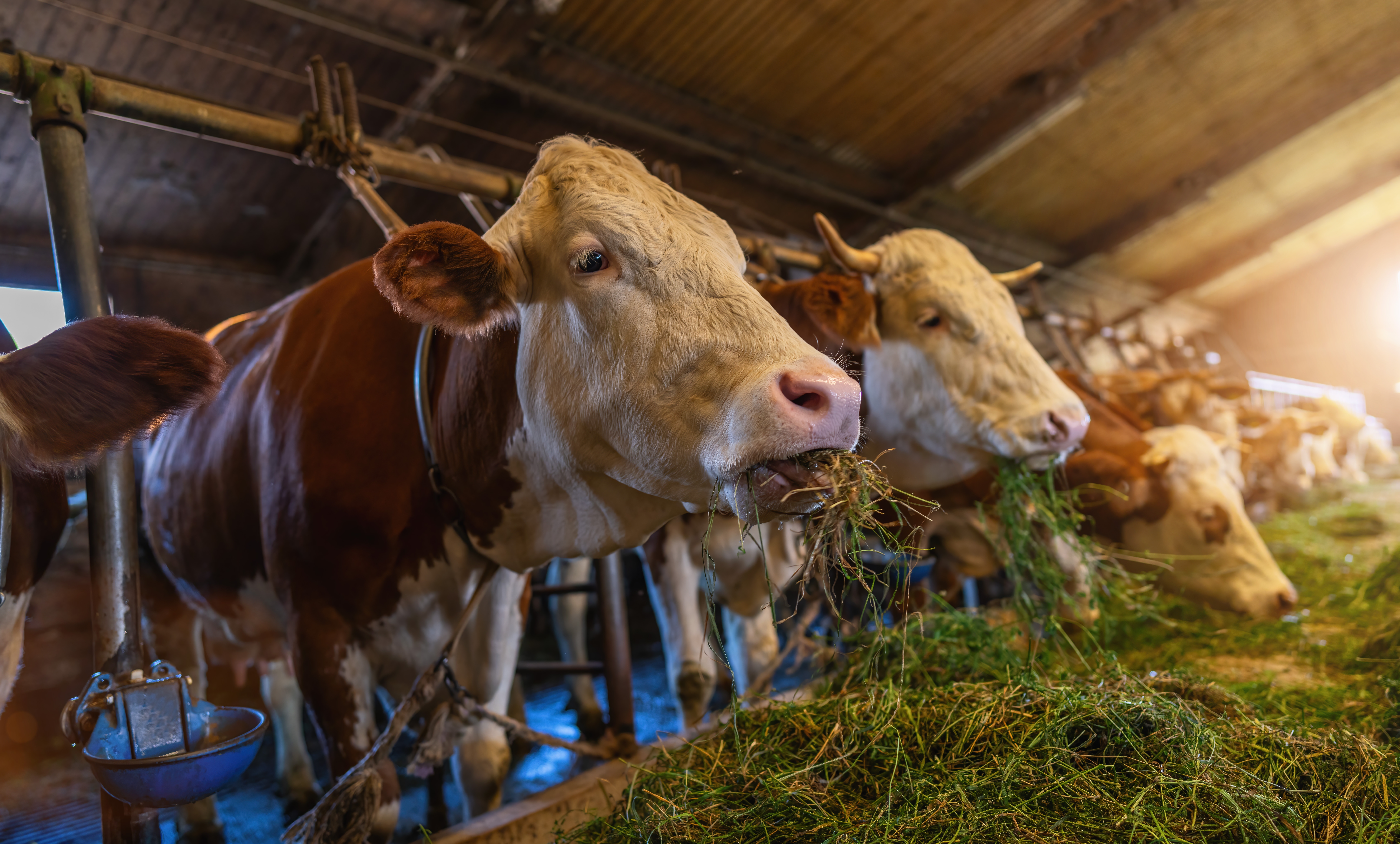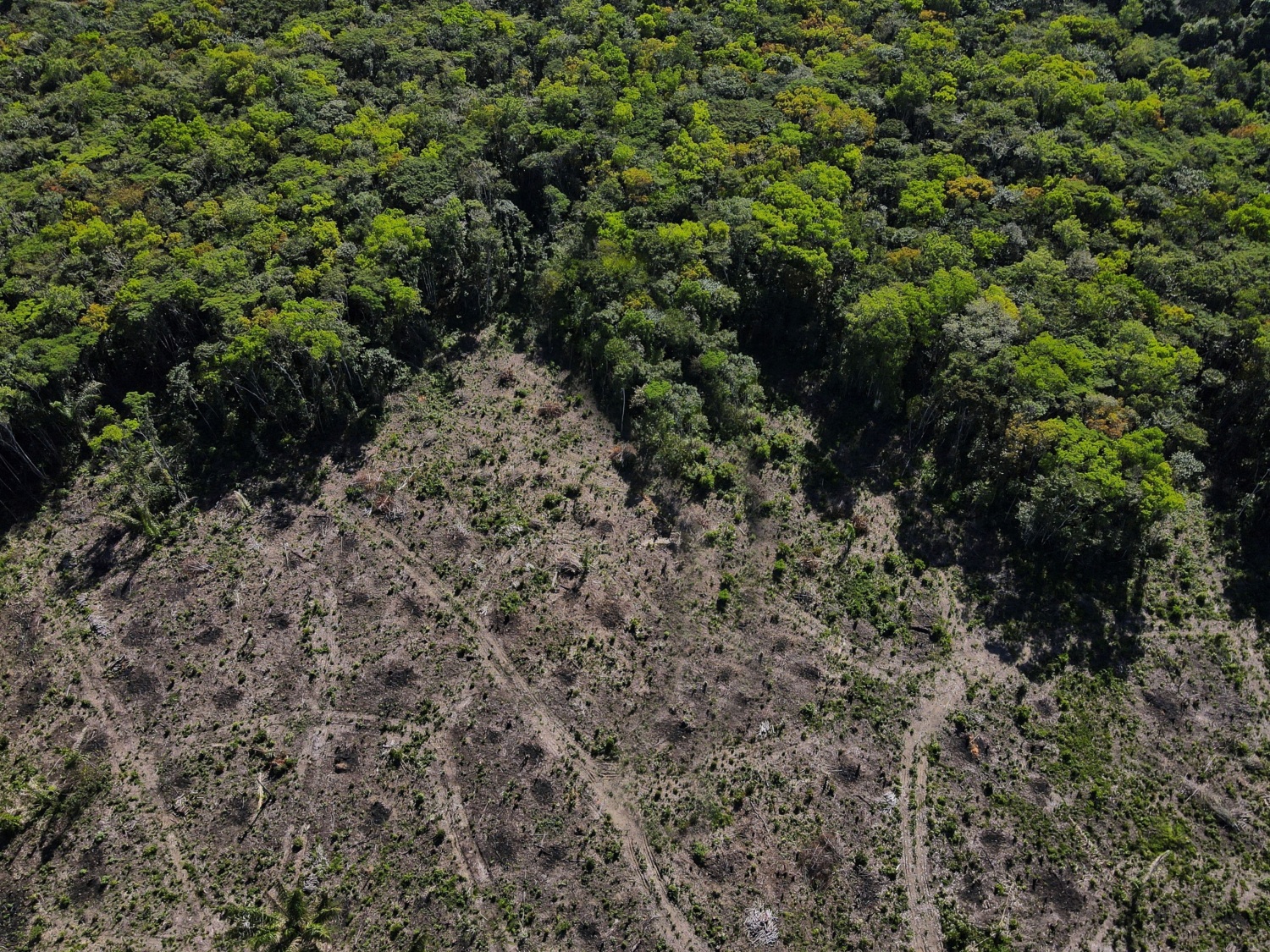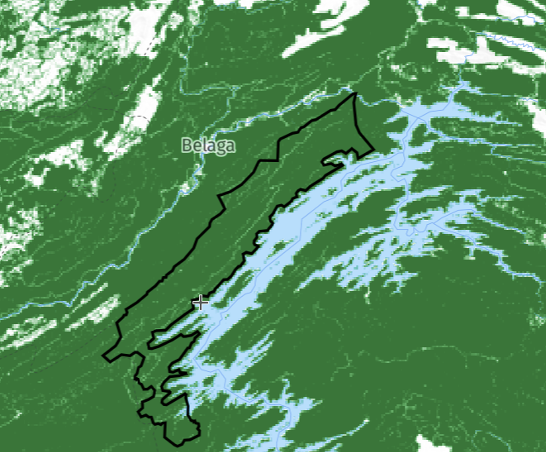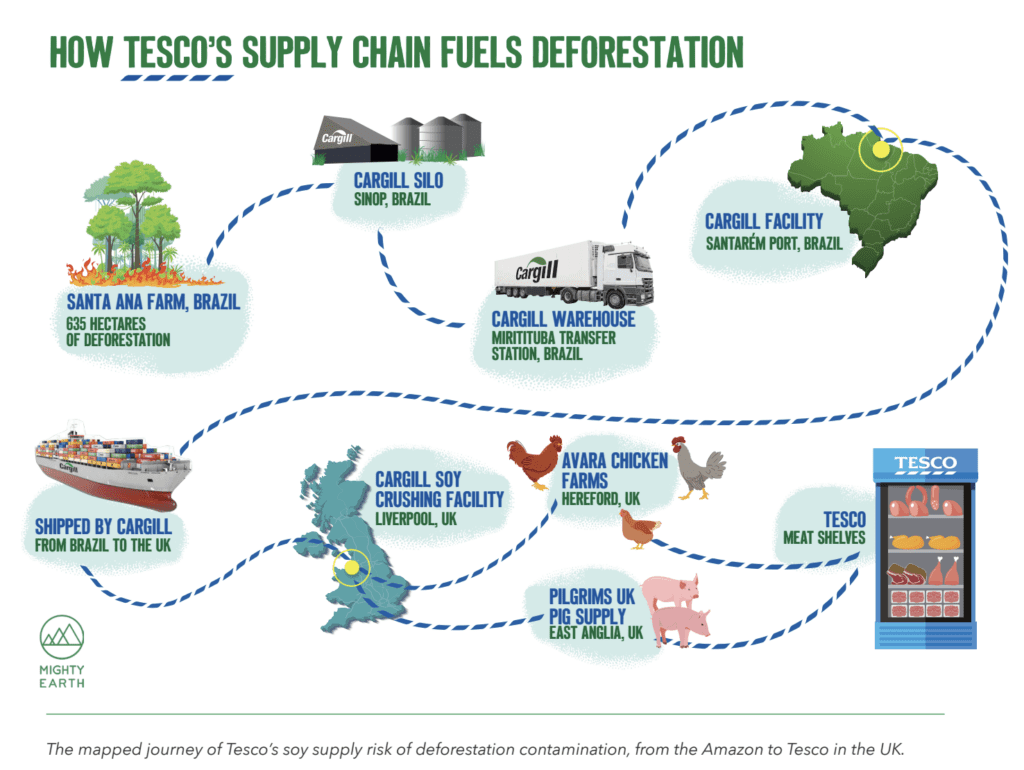
TESCO : A BASKET OF PROBLEMS FOR THE AMAZON
Read our press release Our press release (Portuguese) Take Action: Read the full report here. Take Action: Watch and share our video Tesco AGM blog
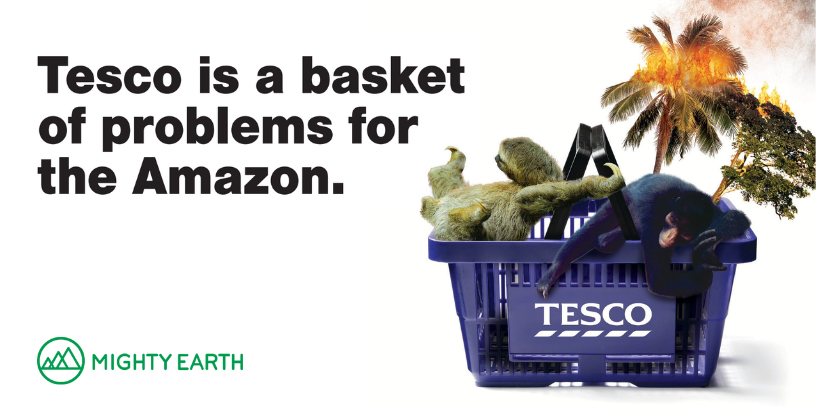
Scientists estimate that the Amazon rainforest is close to an irreversible tipping point, where vast areas of the rainforest will die back and turn to dry savannahs. This has severe local and global implications. The people and wildlife that live there need standing forests for their survival. The Amazon helps regulate global weather patterns and stores carbon in its millions of trees to help cool our warming world. But the scale of deforestation means it is fast releasing more carbon than it stores. Agriculture is the biggest driver of deforestation in the Amazon, harming local communities and decimating wildlife populations. Huges swathes of rainforest have been lost to cattle farming and soy, grown as animal feed. How we produce food is linked to deforestation and supermarkets are complicit in this.
How the chicken and pork in your Tesco store is fuelling Amazon destruction
What’s the issue with soy?
Soy ranks as one of the UK’s top imported agricultural commodities with the highest deforestation risk. The UK imports 3 million metric tons of soy each year, 90% of which is used to feed animals, largely in intensive systems. UK supermarkets are driving demand for soy for livestock feed.
Brazil is the world’s biggest producer of soy. It’s estimated that over 20 million hectares of Brazil’s forest cover have been lost to soy growing in the last three decades. And it’s not likely to improve any time soon, with global meat consumption increasing.
We mapped the soy supply chain from one farm, Santa Ana, in the Brazilian Amazon to the shelves of Tesco. The farm, which supplies soy to US commodities giant, Cargill, we found evidence of 400 hectares of rainforest burned within a few days in September 2022 to make way for soy. That’s more than 560 Wembley football pitches lost in a matter of days, on a single farm.
Our investigation follows the journey of illegally grown soy at Santa Ana farms in the Amazon on its route through Brazil, and its likely transfer to Cargill’s grain store at Santarém port, from where over 75 percent of Cargill’s UK is shipped to Liverpool. On arrival in the UK the soy is sent onto meat processing companies, Avara and Pilgrims, which supply chicken and pork products to Tesco.

Why Tesco?
Tesco is the ninth biggest supermarket in the world by revenue and holds the largest share – some 27% – of the UK retail market. At almost 100,000 tonnes, Tesco had the largest soy footprint of the UK major supermarkets. Agricultural giant, Cargill made up almost a quarter (22%) of Tesco’s soy footprint in 2021.
Tesco has promised to be deforestation-free in its soy supply chains by 2025, but this target is unachievable if it continues to do business with Cargill – Tesco is Cargill’s main customer in the UK. As the UK’s biggest retailer and with such a dominant market share, Tesco can use its power as a force for good to clean up its supply chains and cut ties with known forest destroyers such as Cargill.
None of us wants to be dining on deforestation. We can demand change.
